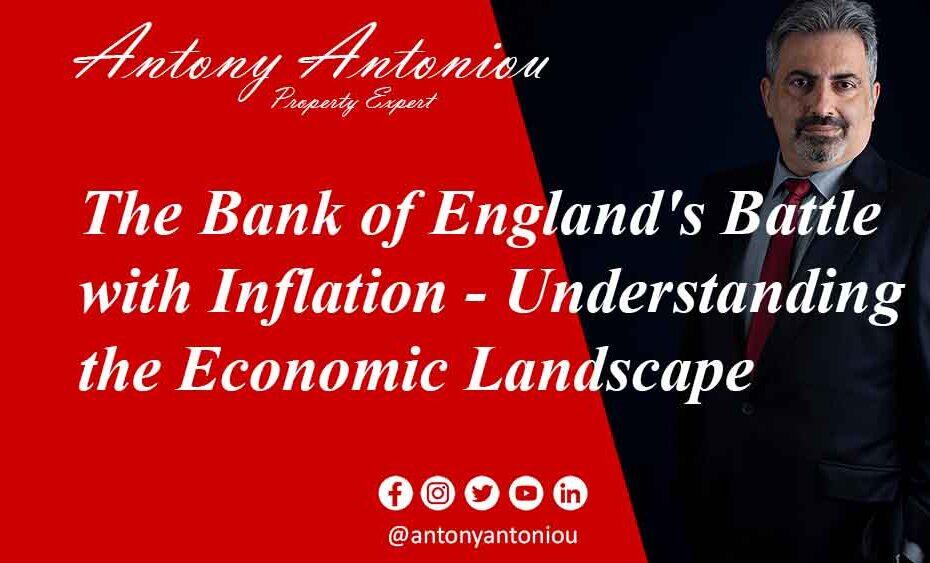The Bank of England’s Battle with Inflation – Understanding the Economic Landscape
Introduction
In recent times, the Bank of England has been making headlines with its continuous interest rate hikes to combat soaring inflation. As the 14th consecutive rate increase approaches, many wonder if this move will effectively address the inflation surge or if it’s merely a superficial show of action. In this blog post, we’ll explore the intricacies of the current economic climate, the challenges of inflation control, and the potential consequences of the bank’s decisions.
The Slow Descent of Inflation
Though inflation is on the decline, it is happening at a sluggish pace. The modern British economy reacts differently to interest rate changes compared to previous years, primarily due to the majority of people being on fixed-rate mortgages. This slower transmission of rate increases to the economy creates concerns that the bank may overdo its efforts in curbing demand, potentially pushing the country into a recession.
The Dilemma of Economic Control
The government’s talk of a potential recession to counter inflation has caused unease among the electorate, especially in the midst of a cost of living crisis and millions of people relying on Universal Credit. The inflationary bout the country faces is not a result of excessive demand but rather the aftermath of lockdowns, broken supply chains, and surging energy prices. Some argue that the bank’s previous monetary stimulus during the pandemic isn’t the root cause of the inflationary boom.
The Bank of England’s Actions: Necessary or Misguided?
The bank’s strategy to reduce inflation comprises two actions: raising interest rates and selling government bonds. The former directly impacts borrowers and the overall economy, while the latter affects funding costs for the government and the broader financial environment. However, some believe that these actions may not have the desired impact on inflation, especially when it comes to essential goods like food.
Economic Growth: A Vital Imperative
To stimulate growth, the government must focus on various strategies. Lowering taxes for lower-wage earners and the working middle class can incentivize more people to rejoin the workforce, resulting in a growing economy. Additionally, businesses need a lighter regulatory burden to encourage investment and expansion. A pragmatic approach to economic policy, like “trussonomics,” could be the key to rejuvenating economic growth.
The Trust Factor
Former Chancellor of the Exchequer, Liz Truss, had a vision that resonated with stimulating economic growth, but she faced opposition from the Bank of England. Despite her plans, the bank seemed to conspire against her efforts, leading to a pension fund crisis and her eventual downfall. Trust and cooperation between policymakers and central banks are essential for navigating economic challenges effectively.
Conclusion
As the Bank of England prepares for its 14th consecutive interest rate hike, the nation watches with anticipation and concern. The slow descent of inflation, coupled with the potential risks of overreaction, creates a challenging economic landscape. It’s crucial for policymakers to work collaboratively, employing pragmatic economic strategies like “trussonomics,” to encourage growth, stimulate the economy, and provide relief to the public amidst the inflation surge. Only by balancing the necessary measures and fostering trust can we hope to navigate through these turbulent times successfully.

